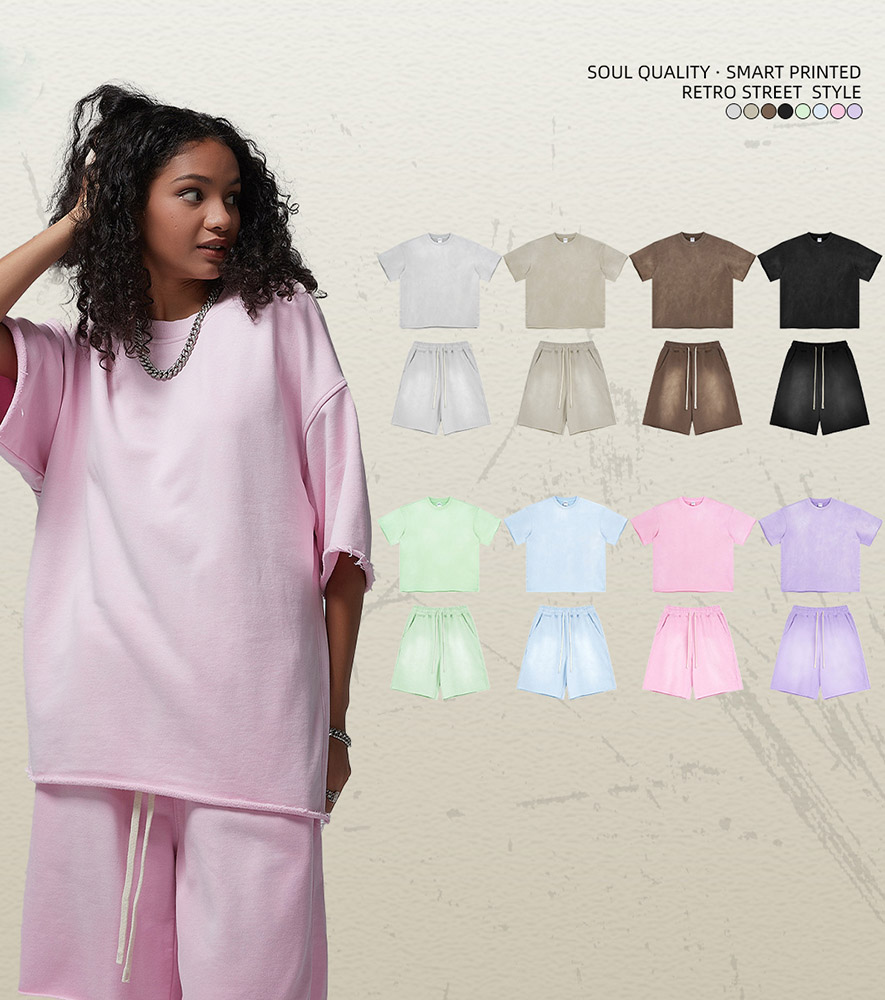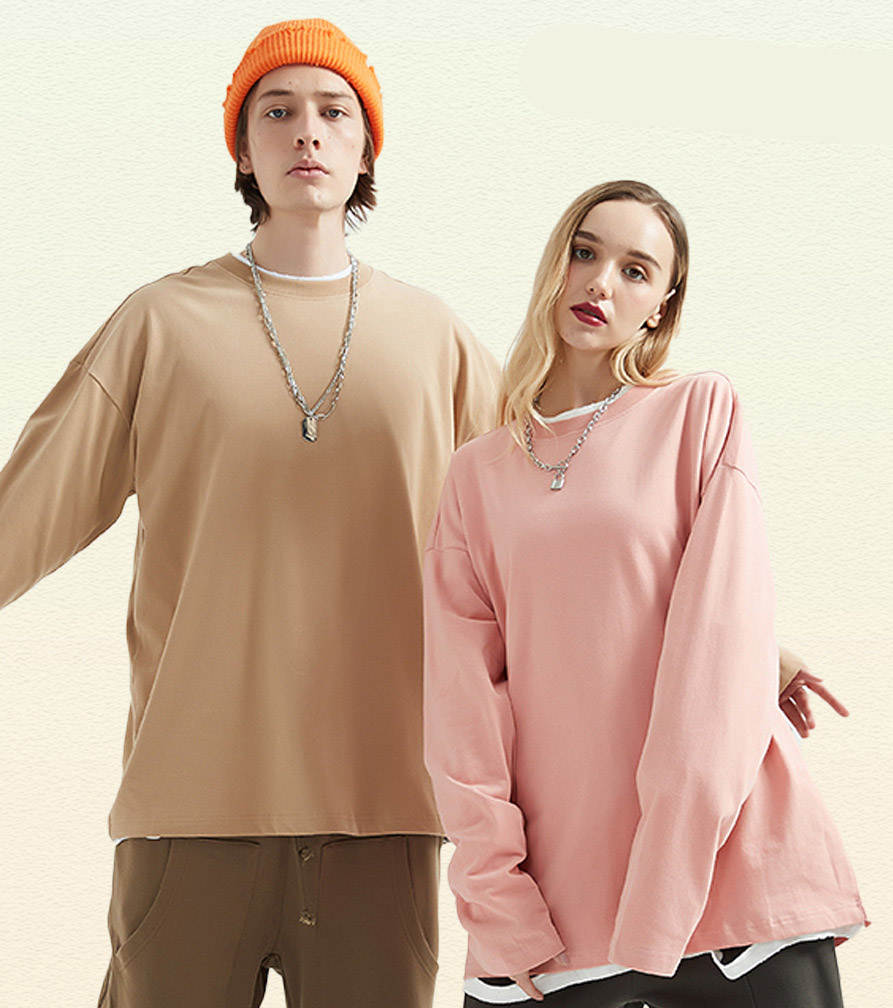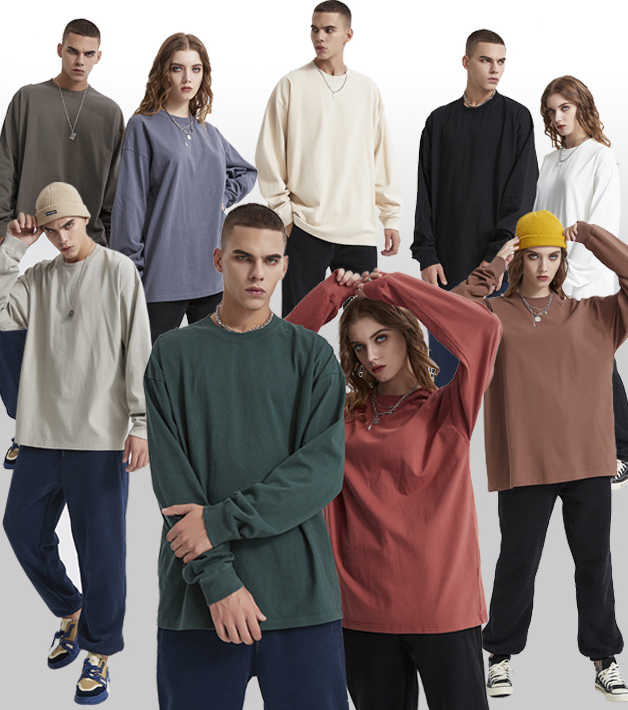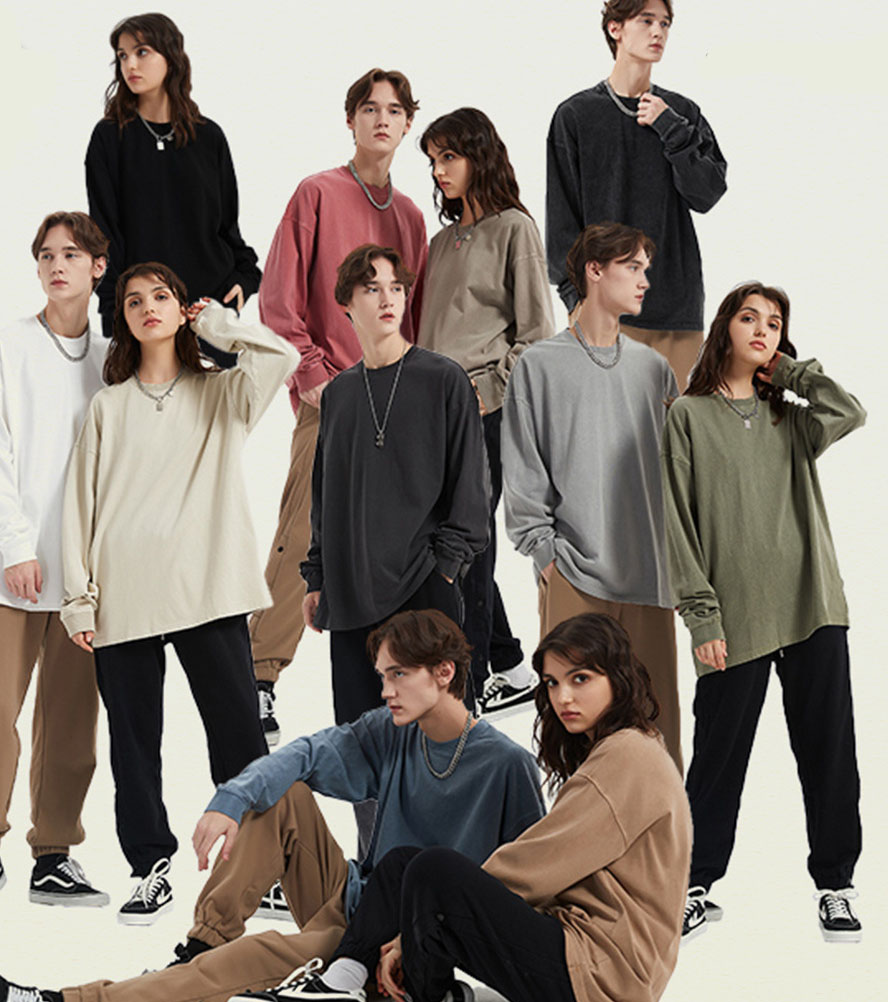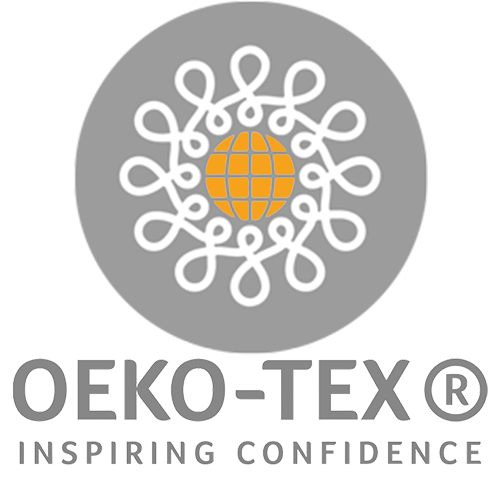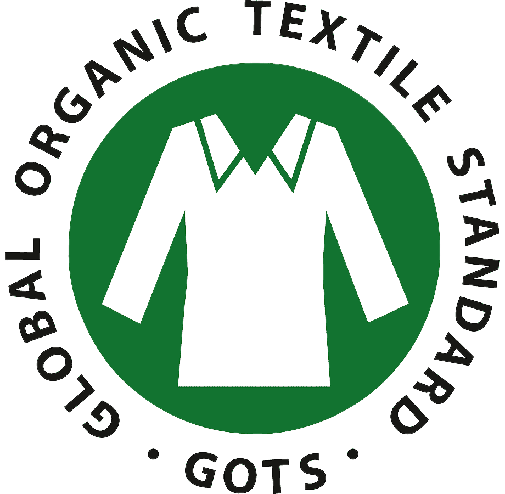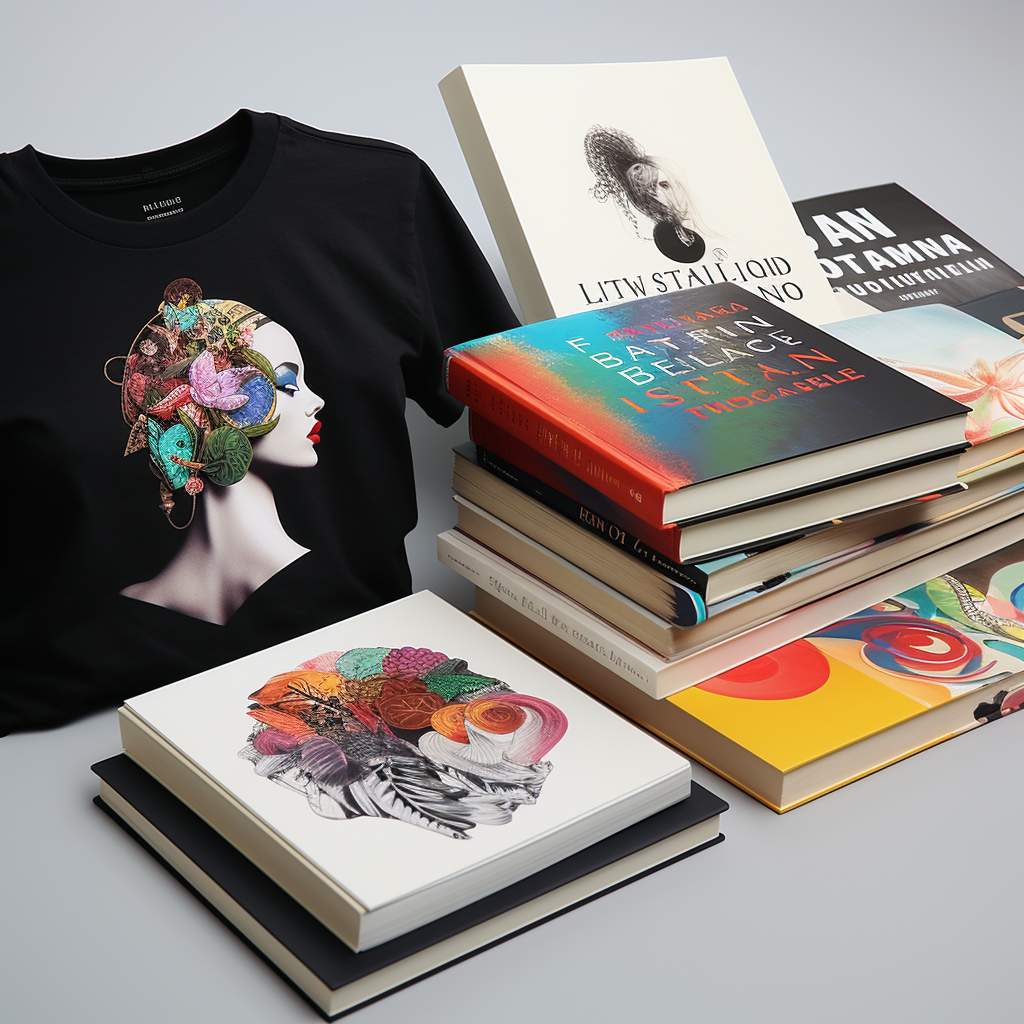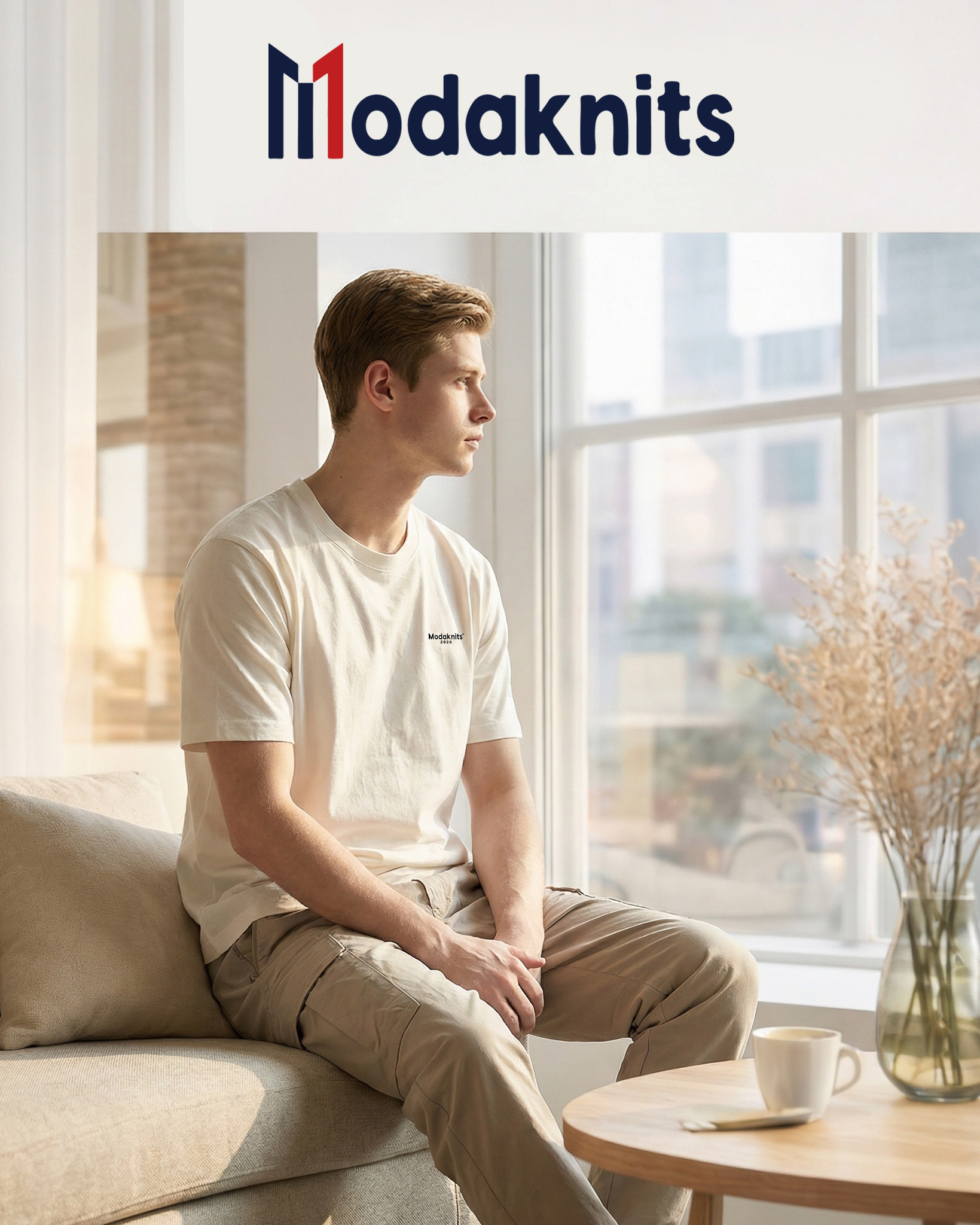Not all T-shirts are created equal. If you’ve ever owned a tee that kept its softness, fit, and color after years of wear, you know the difference true quality makes. High-quality T-shirts deliver superior comfort, durability, and style—but what exactly sets them apart? For apparel brands and discerning consumers, understanding the details behind top-tier T-shirts is key to making smart sourcing decisions.
The highest quality T-shirts combine premium materials (like Supima1 or organic cotton), expert craftsmanship (tight, clean stitching), and strict manufacturer standards. Look for superior softness, strength, shape retention, and certifications to ensure exceptional quality and long-lasting wear.
As a clothing manufacturer, I’ve spent years studying what makes a T-shirt truly outstanding. Here’s a breakdown of the most important factors.
What Defines a “High-Quality” T-Shirt?
Many factors shape T-shirt quality—from fabric feel to color retention and construction details. True quality is a sum of all these elements.
A high-quality T-shirt features premium fabric, smooth and strong stitching, balanced weight (GSM), minimal shrinkage, and excellent colorfastness. It feels soft, looks sharp, and keeps its fit and appearance after repeated washing.
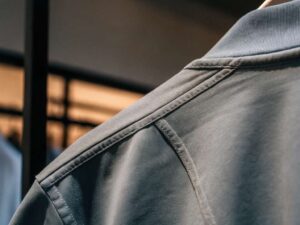 Seam Close-Up
Seam Close-Up
Is it fabric softness, durability, stitching, or all of the above?
All of these matter. Softness ensures comfort, durability comes from strong fibers and sturdy stitching, while neat seams and even hems add longevity and a premium look.
- Softness: High-end cottons (like Pima or Supima) feel smooth because of their extra-long staple fibers.
- Durability: Double-needle or reinforced stitching, plus high-quality threads, keep seams strong.
- Stitching: Look for even, dense stitching—low-end tees often have loose or uneven seams that unravel with use.
| Feature | Why It Matters | What to Look For |
|---|---|---|
| Softness | All-day comfort | Silky, smooth feel |
| Durability | Long-term wear | Dense weave, strong seams |
| Stitching | Maintains shape | Flat, tight, even seams |
How do weight (GSM), shrinkage, and colorfastness contribute to quality?
GSM (grams per square meter) affects thickness and drape; proper pre-shrinking and dye techniques ensure the tee holds its shape and color over time.
- Weight (GSM): 150–180 GSM is ideal for all-season tees, while heavier (200+ GSM) gives a premium, substantial feel. Very light GSM (<130) can feel cheap or wear out fast.
- Shrinkage: Pre-shrunk fabrics maintain size and fit. Quality brands test for minimal shrinkage.
- Colorfastness: High-quality tees use reactive or vat dyes and finishing processes to resist fading, even after many washes.
| Quality Factor | Impact on Wear | How to Test |
|---|---|---|
| GSM | Durability, feel | Compare by hand, check label |
| Shrinkage | Fit retention | Wash test, ask supplier |
| Colorfastness | Appearance, longevity | Rub and wash test |
Best Materials Used in High-End T-Shirts
Fabric choice is at the heart of premium T-shirts. The best shirts use rare, extra-long staple fibers and innovative blends.
Luxury brands prefer Pima, Supima, and organic cotton for their softness, strength, and environmental benefits. Modal, bamboo, and Tencel blends are also considered premium for their smooth feel, breathability, and sustainability.

Why are Pima, Supima, and organic cotton preferred by luxury brands?
These cotton types have longer, finer fibers that create softer, stronger, and less pilling-prone fabrics. Organic cotton is grown without toxic chemicals, appealing to eco-conscious consumers.
- Pima and Supima: Supima is a trademarked, 100% American-grown Pima cotton, known for exceptional strength and silky finish.
- Organic Cotton: Grown with sustainable practices, organic cotton is less likely to cause skin irritation and is often certified by organizations like GOTS2.
| Material | Benefits | Drawbacks |
|---|---|---|
| Supima/Pima | Ultra-soft, durable | Higher cost |
| Organic Cotton | Eco-friendly, gentle | Slightly rougher feel (depends on processing) |
Are modal, bamboo, or Tencel blends also considered premium?
Yes. Modal, bamboo, and Tencel (lyocell) offer outstanding softness, drape, and moisture management, often blended with cotton for the perfect balance of comfort and durability.
- Modal: Derived from beech trees, modal is luxuriously soft and resists shrinking or pilling.
- Bamboo: Naturally antibacterial, breathable, and sustainable, bamboo fabrics feel silky and stay fresh longer.
- Tencel: Made from eucalyptus pulp, Tencel is smooth, strong, moisture-wicking, and eco-friendly.
| Fabric Blend | Standout Feature | Use Case |
|---|---|---|
| Cotton-Modal | Smooth, lightweight | Everyday luxury tees |
| Bamboo blends | Breathable, fresh | Hot weather, sensitive skin |
| Tencel blends | Silky, sustainable | Eco-conscious brands |
How Top T-Shirt Manufacturers Ensure Premium Quality
Top manufacturers implement strict controls at every production stage, from fiber sourcing to final finishing. Certification and experience set the best apart.
The best factories follow international certifications (GOTS, OEKO-TEX), maintain clean, ethical facilities, invest in advanced machinery, and employ skilled technicians. Many luxury brands rely on specific countries or renowned factories for unmatched consistency.
What production standards do the best manufacturers follow (e.g. GOTS, OEKO-TEX)?
Premium manufacturers use GOTS (Global Organic Textile Standard) and OEKO-TEX certifications to ensure materials are safe, organic, and produced under ethical, environmentally-friendly conditions.
- GOTS: Covers the full supply chain, from organic fiber harvesting to environmentally/socially responsible manufacturing.
- OEKO-TEX: Tests for harmful chemicals in finished garments, ensuring safety for sensitive skin.
- ISO certifications: Some factories also hold ISO 9001 (quality management) or ISO 14001 (environmental management).
| Certification | What It Means |
|---|---|
| GOTS | Organic, ethical, sustainable |
| OEKO-TEX | No harmful chemicals |
| ISO 9001/14001 | Quality/environmental standards |
Do luxury brands rely on specific countries or factories for T-shirt manufacturing?
Yes. Many luxury brands source T-shirts from countries with a heritage in textile excellence—like Italy, Portugal, Japan, or select facilities in China and Turkey known for quality craftsmanship and strict standards.
Countries with established textile industries (Italy for knits, Portugal for organic cotton, Japan for innovative blends) are favored for their expertise, technology, and skilled labor. Some luxury brands form long-term partnerships with specific, often family-run, factories to ensure ongoing quality and exclusivity.
How to Identify or Source High-Quality T-Shirts for Your Brand
Careful inspection and sampling are essential before committing to a supplier. Both tactile checks and label information provide valuable clues.
Look for soft, dense fabric, neat and flat stitching, weight (GSM) labels, and reputable certifications. Always request swatches or production samples before bulk orders to verify quality firsthand.
What clues can you find on the label or by touch?
Labels should indicate fiber type, origin, GSM, and certifications. By touch, high-quality shirts feel dense, smooth, and resilient—not thin or scratchy.
Run your fingers along seams to check for tight stitching, flip the shirt inside out to examine construction, and gently stretch the fabric to assess recovery. Labels from reputable brands will list Supima, GOTS, OEKO-TEX, or “organic cotton”—red flags include missing info or generic material descriptions.

| Check Point | What to Look For |
|---|---|
| Fabric feel | Soft, dense, no roughness |
| Stitching | Tight, even, flat seams |
| Labels | Material, GSM, certifications |
Should you request swatches or samples before placing a bulk order?
Absolutely. Always request swatches or full samples to test fabric feel, weight, fit, wash performance, and construction. This helps ensure the product matches your brand’s standards and expectations.
Requesting samples lets you conduct wash and wear tests, check shrinkage, and review print compatibility. Only proceed with suppliers who provide detailed, responsive sampling—this step prevents costly mistakes and builds lasting trust.
Conclusion
A truly high-quality T-shirt blends premium materials, expert construction, and strict manufacturing standards. By understanding and verifying these details—from cotton fiber to factory certification—you’ll consistently deliver superior products that delight customers and set your brand apart.




